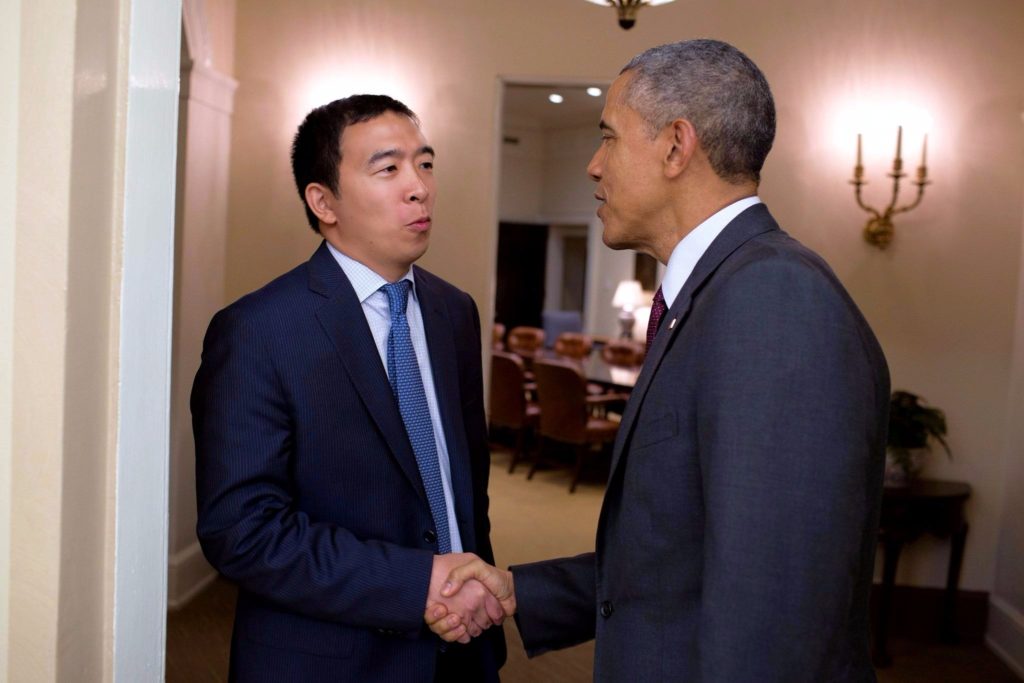If you were one of the many who closely followed the race for the democratic presidential nomination, there is a chance you have come across an asian guy who likes MATH.
His name is Andrew Yang. He is the father of 2 young sons, one of whom is autistic, and the wife of Evelyn Yang. He is the son of immigrants from New York, went to high school at Phillips Exeter Academy, which is basically a high school version of Harvard University, and went to Brown University for College.
His life didn’t become too meaningful until he founded Venture for America (VFA) which educates entrepreneurs to create jobs around the company. The success of VFA is best stated in Andrew Yang’s 2020 Presidential Campaign website, https://www.yang2020.com/meet-andrew/
“In its first year, VFA trained 40 Fellows; by 2017, more than 500 VFA Fellows and alumni had launched dozens of companies and helped create thousands of jobs across the country. The Obama White House even named me a Champion of Change in 2012 and a Presidential Ambassador for Global Entrepreneurship in 2015.”

Despite the successes, Andrew himself saw that there was a problem with his company. While it did create jobs, he repeatedly describes the outcome as “filling a bucket of water with a hole in the bottom”. He basically saw that for every x or so jobs he helped create, many more were being automated away by robots, artificial intelligence, and some form of automation.
In the 2016 presidential race, he supported Bernie Sanders for the Democratic Nomination but still ended up voting for Hillary Clinton. The outcome of that election was a surprise even to him. The swing state Iowa went to a narcissist reality tv star by 10 points. The media narrative of Russia, Hillary Clinton, Emails, Benghazi, Facebook all sounded like promising reasons why Hillary Clinton lost the election, but Andrew Yang knew Americans were smarter than that and did some research.
What literally no one else realized was that in the states Trump won in 2016, automation was taking away millions of manufacturing jobs. Government retraining programs did little to quell the job loss so people never went back to work.
So then Andrew Yang did more research and came out with a solution to run for President of United States. He was politically nowhere but managed to outlast sitting senators, governors, and other high ranking democratic politicians.
He ran primarily on the basis of Universal Basic Income of $1,000 a month to all americans over 18. Criticisms of it aside, the sole idea of getting free money got people energized and fired up for the idea. Through debates, interviews, and town halls, his pragmatic view on politics as well as his emphasis on blaming systems as opposed to people helped many reevaluate what it means to be political in the current firestorm of the two-party system.
Andrew Yang was not the first to come up with UBI. It stems all the way back to the renaissance era as purely an economic idea people had back then but was never implemented because jobs were well-available back then.
But even though Andrew Yang was not the first to spread word about the idea, his courage and bravery through many hardships including campaigning many weeks and months away from his family, battling widespread criticism and ignorance in the news media, as well as simply coming from nowhere politically.
But what is Andrew Yang’s endgame here? He doesn’t care about his political future, he just wants to end poverty.